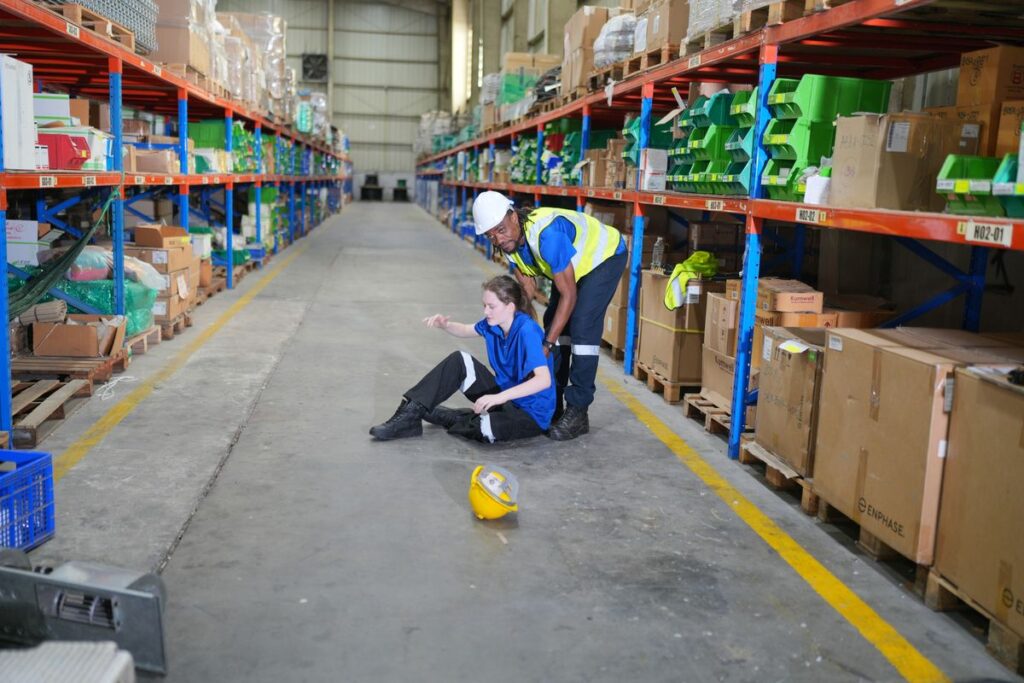Georgia, with its picturesque landscapes, bustling cities, and warm southern hospitality, is home to millions. However, as with every state, accidents happen. Personal injury claims in Georgia vary from motor vehicle accidents to slip and falls. Understanding the most common types of cases can equip residents and visitors alike with the knowledge to navigate unforeseen circumstances.
1. Car Accidents
Georgia’s roads are traveled by millions of vehicles daily. With Atlanta’s notorious traffic congestion and the I-285 perimeter being dubbed one of the nation’s deadliest highways, it’s no surprise that car accidents top the list.
Diving Deeper into Why Accidents Occur:
- Distractions: The modern age comes with its set of distractions. From smartphones to in-car entertainment systems, drivers often divert their attention from the road, leading to catastrophic outcomes. A split-second glance at a text can mean missing the brake lights ahead.
- Speeding: A common menace, speeding reduces reaction time, making it harder to steer away from danger. On highways like I-285, excessive speeds can turn minor errors into major disasters.
- Impaired Driving: Whether due to alcohol, drugs, or even lack of sleep, impaired driving remains a significant concern. With Georgia’s vibrant nightlife, particularly in cities like Atlanta and Savannah, there’s an uptick in DUI-related accidents post-midnight.
Immediate Measures After an Accident:
- Medical Aid: Always prioritize health. Some injuries, like whiplash or internal bleeding, might not manifest immediately but can have long-term consequences. A prompt medical check-up ensures your well-being and creates a record if legal steps are pursued later.
- Documentation: The chaos post-accident can be overwhelming. However, collecting evidence, taking photographs of the scene, damaged vehicles, road conditions, and any visible injuries can be invaluable later.
- Witnesses: Witnesses provide an unbiased account of the event. Gathering their contact details can be crucial if there’s a dispute about how the accident unfolded.
Navigating Georgia’s Legal Landscape
Georgia’s legal stance on car accidents is rooted in the “modified comparative fault” principle. This means:
- Shared Blame: If both drivers contributed to the accident, the compensation one might receive will decrease based on their percentage of fault. For instance, if you’re deemed 20% responsible, your compensation might reduce by 20%.
- The 50% Rule: There’s a catch. If you’re found to be 50% or more at fault in Georgia, you could be barred from recovering any compensation.
2. Slip and Fall Accidents
Georgia’s public spaces, businesses, and residences are potential grounds for slip and fall incidents. Such cases revolve around premises liability.
Diving Deeper into the Common Causes:
- Environmental Hazards: Georgia’s climate, especially during the wetter months, can contribute to slippery conditions, both indoors and outdoors. Overflowing drains, rain-soaked entrances, or even morning dew on walkways can be potential hazards.
- Maintenance Oversights: While a freshly waxed floor might shine brilliantly under overhead lights, without proper warning signs, it’s a disaster waiting to happen. Similarly, staircases without proper handrails or steps that have eroded over time pose significant risks.
- Structural Flaws: Loose floorboards, unsecured rugs, or tiles that pop out are not just minor infractions but significant hazards. In commercial establishments, where foot traffic is high, such oversights can lead to serious injuries.
Steps to Take Post Incident:
- Immediate Reporting: It’s vital to inform the property owner, management, or security about the incident. This ensures that immediate measures are taken, and it establishes a record of the event.
- Medical Evaluation: What might seem like a minor sprain or a simple bruise can escalate into something more serious. Always get a thorough medical evaluation post-incident.
- Evidence Collection: Click photographs of the exact spot, any visible hazards, or lack of warning signs. If there are witnesses, their testimonies can be invaluable, so gather their contact information.

3. Commercial Vehicle Accidents
In the busy roads of Georgia’s business landscape, commercial vehicles – ranging from delivery trucks to eighteen-wheelers – are a common sight on the highways and city streets. These behemoths of the road are essential to Georgia’s economy but can also be involved in severe accidents.
Why They Happen: Factors like driver fatigue, overloaded cargos, inadequate training, or improper vehicle maintenance often play a part. Tight delivery schedules can lead drivers to bypass safety regulations, making roads dangerous for other users.
What to Do: As with any accident, prioritizing safety is crucial. Move to a safe location, contact law enforcement, seek medical attention, and document the scene. Due to the complexity of commercial vehicle accidents, involving multiple parties and insurance companies, reaching out to a personal injury lawyer can be particularly beneficial.
Georgia Specifics: Commercial vehicles in Georgia operate under both state regulations and federal guidelines set by the Federal Motor Carrier Safety Administration (FMCSA). Any violation of these standards can be used as evidence of negligence in personal injury claims.

4. Work-Related Injuries
While Georgia boasts diverse industries from agriculture to film, workers face potential hazards daily. Navigating workplace injuries in Georgia is about being proactive, informed, and aware of the resources at your disposal. While industries come with inherent risks, the state’s protective mechanisms aim to ensure that workers have both preventive measures and post-injury recourse.
Industry-Specific Risks: Different sectors present unique challenges. For instance, agricultural workers might encounter machinery accidents or pesticide exposure, while those in the film industry might face risks from set constructions, electrical equipment, or even stunts. Understanding the particular hazards of your industry is the first step in safeguarding oneself.
In-Depth on Why Accidents Occur
- Machine Malfunctions: Whether it’s agricultural machinery or industrial equipment, mechanical failures can lead to severe injuries.
- Falls from Heights: Construction sites, warehouses, or even film sets can have workers operating at elevated heights. Improper safety measures can lead to dangerous falls.
- Repetitive Stress Injuries: Industries requiring repetitive motions, like assembly lines or even continuous computer work, can lead to overuse injuries over time.
- Exposure to Harmful Substances: From chemicals in factories to harmful pesticides in farms, daily exposure without proper protection can have dire health implications.
Immediate Steps Post-Injury
- Swift Reporting: It’s imperative to notify your employer about the injury promptly. This not only initiates the necessary paperwork but also ensures that any hazardous conditions are addressed to prevent further accidents.
- Medical Aid: Seeking medical help is crucial, even if the injury seems minor. Some complications may manifest later, and early treatment can make a significant difference.
Understanding Georgia’s Protective Net
Georgia’s Workers’ Compensation Act is designed to ensure workers have a safety net if injured on the job. This system provides vital benefits, such as medical expenses coverage, rehabilitation, and a portion of lost wages. But, being conversant with the specific rules and regulations is crucial:
- Time Frame: In Georgia, an injured worker typically has 30 days to report the injury to their employer. However, for the best results, immediate reporting is advised.
- Choosing a Physician: Under the Act, employers are often required to provide a list of authorized treating physicians. Workers should select a doctor from this list to ensure their medical bills get covered.
- Filing a Claim: If you face any disputes with your employer or their insurance regarding your benefits, you have the right to file a claim with the State Board of Workers’ Compensation. But, be aware: there’s a one-year time limit from the date of the accident to do so.
5. Wrongful Death Claims
The loss of a loved one is among life’s most tragic events. When that loss is sudden and due to the negligence or misconduct of another, the grief is compounded. Georgia recognizes the profound impact of such losses, and wrongful death claims serve as a legal avenue for families to seek justice.
Why They Happen: Wrongful deaths can result from various incidents, including car and commercial vehicle accidents, medical malpractice, workplace mishaps, and even criminal acts.
What to Do: In the aftermath of a heartbreaking loss, legalities might be the last thing on one’s mind. However, it’s essential to consult with a wrongful death attorney who can guide the family through the process. They can help gather necessary evidence, understand the value of the claim, and ensure that all legal deadlines are met.
Georgia Specifics: In Georgia, the surviving spouse, children, or next of kin can file a wrongful death claim. The state defines wrongful death as a death “caused by the negligent, reckless, intentional, or criminal acts of another person or entity.” Compensation might cover lost wages, medical expenses, and even intangible elements like companionship. It’s important to note that Georgia has a statute of limitations for filing these claims, generally two years from the date of death.
In Conclusion
Georgia, like any other state, has its share of personal injury cases. Being informed about the most common types can empower individuals to act promptly and decisively. While no one wishes to be in such situations, understanding your rights and responsibilities can make the recovery process smoother and more effective. Always consider seeking legal counsel to navigate the complexities of Georgia’s personal injury laws.

